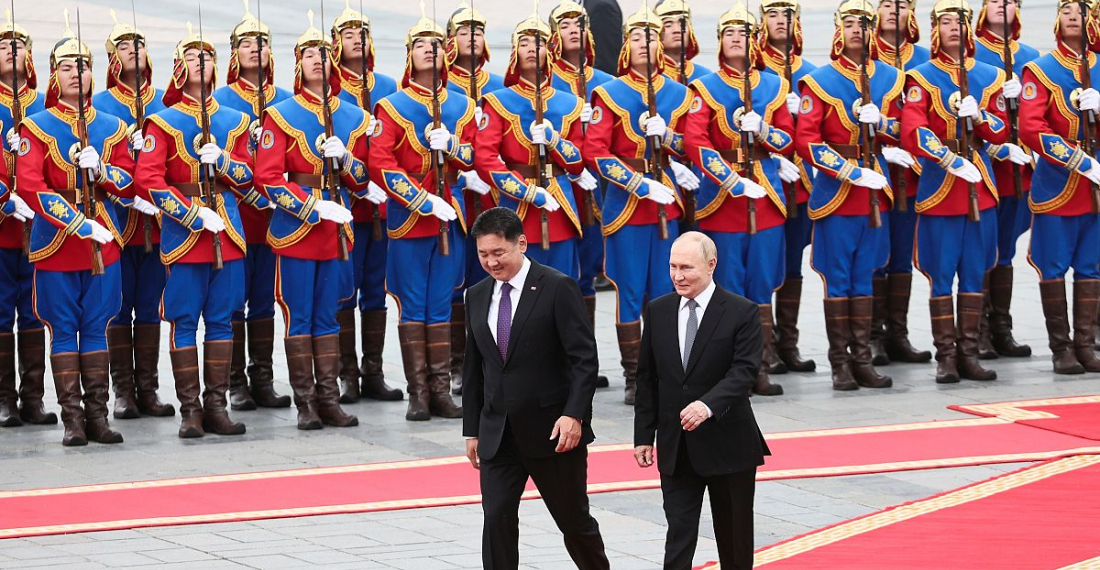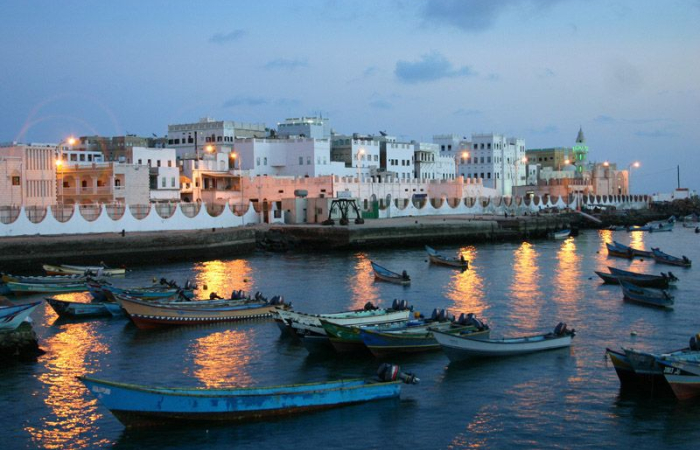Russian President Vladimir Putin received a red carpet welcome on Tuesday (3 September) during a state visit to Mongolia. The country's decision not to arrest him despite a warrant from the International Criminal Court (ICC) drew criticism from Ukraine, which saw it as a setback for justice. Arriving in the capital, Ulaanbaatar, Putin was greeted by Mongolian President Ukhnaagiin Khurelsukh. A line of ceremonial guards on horseback wearing pointed helmets lined up in his honour.
The ICC arrest warrant, issued last year, obliges its 124 member states, including Mongolia, to arrest Putin and hand him over for trial in The Hague if he enters their territory. Ukraine criticised Mongolia's failure to act on the warrant, with foreign ministry spokesman Heorhiy Tykhyi calling it "a heavy blow to the International Criminal Court and the criminal justice system". He said that by allowing "an accused criminal to escape justice", Mongolia was sharing responsibility for war crimes. Tykhyi added on the Telegram messaging app that Ukraine would work with its allies to ensure that Mongolia faced consequences for this decision.
President Khurelsukh expressed hope that Putin's visit would boost trade and economic cooperation between the two countries. Mongolia lies on the proposed route of a major gas pipeline that Russia wants to build. The project, known as Power of Siberia 2, is part of Russia's strategy to compensate for the loss of most of its gas sales to Europe following the start of the war in Ukraine. It will follow an existing pipeline of the same name, which already supplies Russian gas to China and is expected to reach its full capacity of 38 billion cubic metres a year by 2025.






